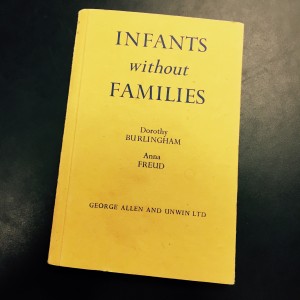
Is Democracy Dying?
Democracy has developed into a cornerstone of Western Civilization, providing the basis for our political systems, our views of human rights, and the way in which we organize our businesses, our schools, and our homes in society. A paper published in The Journal of Democracy shares global research that indicates that dedication to and support of democracy is beginning to wane — even in the West. The report shows, for example, that in the United States, less than one-third of millennials—defined as people born since 1980— say that democracy is an essential factor for them for choosing where they would want to live. ” Worse still, the paper reports that there is growing opposition among young people to democracy. “In 2011, 24 percent of U.S. millennials (then in their late teens or early twenties) considered democracy to be a “bad†or “very bad†way of running the country. Although this trend was somewhat more moderate in Europe, it was nonetheless significant: In 2011, 13 percent of European youth (aged 16 to 24) expressed such a view, up from 8 percent among the same age group in the mid-1990s.”
In lieu of democracy, more and more Westerners are considering authoritarianism as recourse to the ills of civil society. “35 percent of wealthy young Americans say it would be “a ‘good’ thing for the army to take over†the nation.  The paper summarizes that young people have become “more cynical about the value of democracy as a political system, less hopeful that anything they do might influence public policy, and more willing to express support for authoritarian alternatives.”
Generational Politics
One reason youth might be less committed to democracy is that they are not participating in democracy as much as they used to. Jon Grinspan, writing for The Atlantic, has a startling thesis regarding why youth are less politically engaged than before. Our youth are increasingly disengaged in the political processes and institutions that help shape civic society, he says, precisely because we have separated them as a demographic from older generations. In an article entitled “How ‘Millennials’ Ruined Democracy” (millennials designating the term and all it stands for, not the actual people), Grinspan recalls how historically, political engagement in the 19th century was so high because youth were not siphoned off from older siblings, parents, and other local adults in their formation.
Grinspan writes that “America’s institutions forced generations to mingle. In one-room schoolhouses, 8-year-old boys and 14-year-old girls overheard 20-something students hollering partisan slogans. Such mixing wrote an Illinois schoolteacher in 1860, proved “the genius of a republican government in which every member, male and female, large or small, feels a keen, personal interest.†Grinspan also notes that cultivation of engaged citizenry began at home. He writes of how “Susan Bradford, a 14-year-old Florida belle, filled her diary with tales of the multi-generational debates that shook her family’s dinner table in the 1860 election. Even her 9-year-old cousin Mattie, a budding young Whig, “shakes her golden curls and turns up her pretty little nose†in protest when her relatives sang Democratic songs.”
At the turn of the century, generations began to be divided and young people increasingly found companionship primarily circles of their peers. Grinspan notes that “By 1909, the reformer Jane Addams worried that democracy “no longer stirs the blood of the American youth.†She argued that “never before have the pleasures of the young and mature become so definitely separated,†stifling the sense of a shared interest in public life.” This trend continued and has followed us into our 21st-century context: consider, for example, how major marketing and advertising segments by age rather than marketing to the whole family as it used to do. Grinspan says the problem with generationally-divided politics is that “young people grow up.” He writes:
“This is what makes winning their votes so difficult, and so unlike appealing to other demographics. There is little time to build networks, develop ideologies, or select leaders. With so much turnover, once a young generation gets organized politically, it’s not young anymore.”
And once that generation, which organized itself politically, grows up, it is immediately out-of-touch and not in connection with the next generation which attempts to mobilize, and on and on this process goes.
Grinspan notes that “generations do play an important role in American politics, giving diverse groups something to unite around. But that strength is also a weakness: uniting a generation often means isolating it, bottling up its knowledge and excitement. In politics, and in the rest of life, age mixing has a power that is often neglected in this segmented, modern world—a power that once made schoolyards brawls and dinner-table debates the centerpieces of American democracy.” In light of this, he advises us to “forget generations” and to “stop chattering about millennials” because “blurring those age-based divisions will only help make American democracy more sustainable.”
Reviving Democracy Through Parental Engagement
In Grinspan article for The Atlantic, he notes how the home used to be an incubator for democratic values. I think he’s right — civic engagement begins at home with parental engagement. In 2014, I wrote a series of blog posts on parental engagement in civic engagement. My first post shares research on why voting is important (and effective), particularly in local elections and in the second post, I share memories about going to vote with my parents, which were formative experiences for me. The third post examines the 2008 election of President Obama and, in keeping with Grinspan’s thesis, shares 2010 findings from Pew Research on how “the political enthusiasms of Millennials have since cooled – Obama and his message of change, for the Democratic Party and, quite possibly, for politics itself. Finally, in my fourth post, I discuss Tocqueville’s vision for civic life.
I staunchly believe as Tocqueville stated that “municipal institutions constitute the strength of free nations. Town meetings are to liberty what primary schools are to science; they bring it within the people’s reach, they teach men how to use and how to enjoy it. A nation may establish a free government, but without municipal institutions it cannot have the spirit of liberty.†– (Chapter V) Here are three quick tips for parents in nurturing the kind of civic engagement that can teach the next generation to cherish democracy and work within democracy for the common good.
1. True and lasting change begins slowly, often imperceptibly, and on a very small level. If you focus on being a supportive spouse, an engaged parent, a dependable worker, and an upstanding member of the community, you’ll be sending ripples through the pond and will be helping make America a better place.
2. Seize opportunities to be active and engaged: vote in local, not just presidential, elections; participate in community food and clothing drives; find out how you can get involved mentoring youth through programs like Big Brother Big Sister.
3. Encourage your children to be active in their community. Help them learn to be good leaders and provide opportunities for them to be involved in community service. Consider things like volunteer work, community theater, church or school outreach projects, etc.
Conclusion
Ronald Reagan once said that freedom is only a generation away from extinction. Â He understood that sustaining democracy is a continual work and that our civic society is both precious and fragile. Saving democracy isn’t the sole task of one man or one woman but it is a task that we all share. Healing the wounds of our civil society begins on the local level in the communities in which we live and work. Most importantly, learning how to sustain our civic project begins with the family and in the home.




